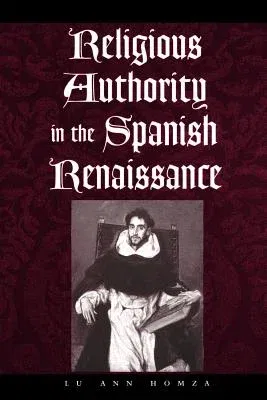Lu Ann Homza
(Author)Religious Authority in the Spanish RenaissancePaperback, 15 December 2003

Qty
1
Turbo
Ships in 2 - 3 days
In Stock
Free Delivery
Cash on Delivery
15 Days
Free Returns
Secure Checkout

Reading Age
Ages: 22
Grade Levels
17
Part of Series
Johns Hopkins University Studies in Historical and Political
Part of Series
Johns Hopkins University Studies in Historical and Politthe
Part of Series
Johns Hopkins University Studies in Historical and Political
Part of Series
Johns Hopkins University Studies in Historical and Political Science
Print Length
344 pages
Language
English
Publisher
Johns Hopkins University Press
Date Published
15 Dec 2003
ISBN-10
0801879043
ISBN-13
9780801879043
Description
Product Details
Audience:
Ages: 22
Author:
Book Format:
Paperback
Country of Origin:
US
Date Published:
15 December 2003
Dimensions:
23.93 x
15.75 x
2.26 cm
Educational Level:
Grade Levels: 17
Genre:
Spanish
ISBN-10:
0801879043
ISBN-13:
9780801879043
Language:
English
Location:
Baltimore
Pages:
344
Publisher:
Series:
Weight:
517.09 gm